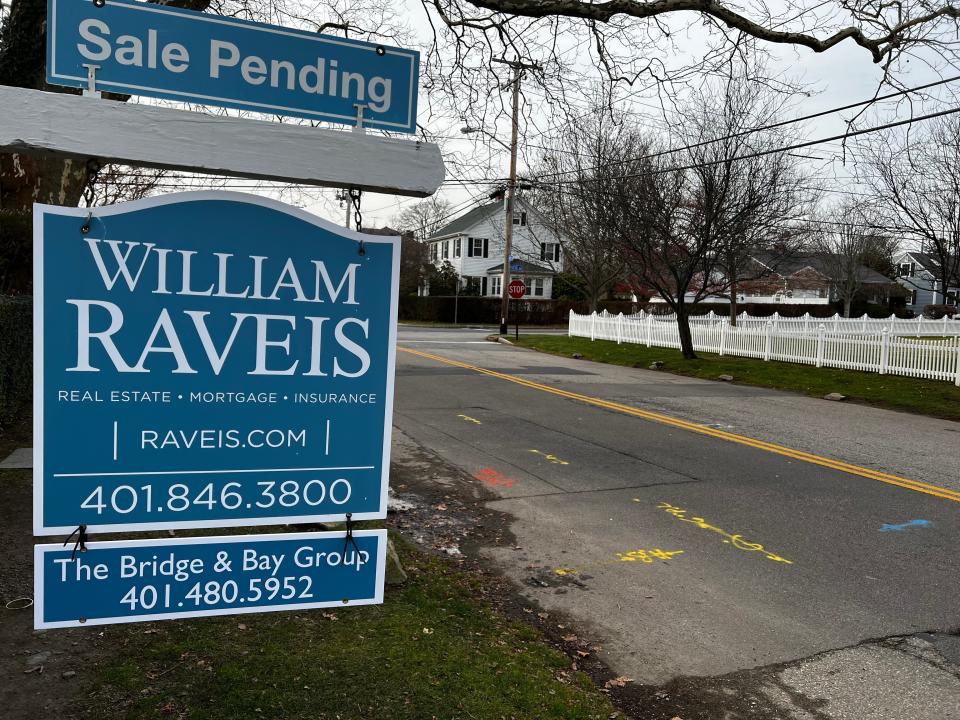Is a 'Mansion Tax' right for Newport? Realtors raise concerns as home prices rise
NEWPORT – City officials are trying to raise capital to fund over $500 million in needed infrastructure and capital improvements over the next five years, but a county-wide real estate professionals group warned against a recent proposal from the City Council to levy a tax on property sales of more than $2 million, as it might prevent local homeowners looking to sell from doing so.
“Our average price in Newport is about $800,000 and that does not get you much,” Newport County Board of Realtors President Sandi Warner said. “Two million is not a mansion. Two million is just a house.”
The City Council is considering asking its legislative delegation to submit a bill that would allow the city to impose a 3% tax on real estate sales over $2 million, which city administration believes would generate between $4 million and $5 million annually that could be put into a restricted, interest-bearing Resilience and Sustainability Fund.

The proposal received pushback when it was first discussed at a February City Council meeting, leading the council to continue the discussion to this upcoming meeting on March 13. Warner said taxes like these will chill real estate in Newport, which has been in an odd spot recently following the hot sellers market of the past two years.
“It’s an unusual market,” Warner said. “If you have a nice home and you are well-priced, you will probably get two or three offers on it. If you are throwing a number up on the wall just to see if it will stick, the buyers have been in the marketplace for longer now and they are very educated. They are not willing to pay these wild numbers that we did see two or three years ago.”
'Mansion tax' in use in other cities
Warner said the type of tax the city is proposing is typically referred to as a mansion tax, as it is a progressive tax on property sales over a certain sum. A handful of states have such a tax in place, but at different thresholds and with different rates. Connecticut’s legislature passed a bill in 2019 imposing a 2.25% conveyance fee on home sales above $2.5 million. New York home sellers have been paying a progressive tax on real estate transactions higher than $1 million since 1989.
In Los Angeles, 58% of residents approved Measure ULA, a 4% transfer fee on estate transactions over $5 million that increases to 5.5% on properties over $10 million, during the 2022 election. The abbreviation stands for “United to House L.A.,” and was established to fund affordable housing projects and provide resources for residents at risk of homelessness. Since then, multiple lawsuits have been filed to argue against the tax, one of which a Superior court judged recently dismissed.
A realtor and member of the Tax Appeals board gives an anecdote about a home owner who is looking to purchasing a multifamily home he wants to rent out and says he would probably seek someone selling for under $2 mill to save. She says they don't have the buyers to support this
— savana dunning (@savanaish) February 29, 2024
Although the Newport County Board of Realtors has only discussed the issue briefly, Warner said the main concern is the $2 million threshold. Of the 282 properties sold in Newport over the past year, Warner said 10%, or 30 properties, were sold for more than $2 million. This includes single-family homes, multi-family homes, commercial properties and vacant land sales.
Additionally, 455 properties in Newport that were previously assessed as being worth under $2 million are now over that threshold following the most recent reassessment.
“It’s unprecedented the amount of equity that homeowners have in their home in Newport right now,” Warner said. “That’s money that they have. If they decided to sell their home, that could fund an early retirement. That could fund moving out of state. That could fund college educations. There’s a plus side to it. The downside is it is out of reach to purchase in Newport for many locals.”
Other options and a possible battle
Warner suggested a better solution might be to levy a smaller real estate conveyance tax on a wider range of property types. For example, Little Compton’s Agricultural Conservancy Trust is primarily funded through a 4% real estate transfer tax on property sales over $300,000.
If the City Council plans to pass the proposed legislation onto its delegates at the State House, Warner said she expects the statewide RI Association of Realtors to fight it. The association has three active lobbyists working at the State House currently as well as a political action committee, the Realtors PAC of RI, which has contributed campaign funds to Rep. Marvin Abney and Sens. Dawn Euer and Lou DiPalma, all of which are members of the city’s delegation, between 2020 and 2023.
As a trade organization, Warner said the Board will continue to advocate for its industry. However, as a member of the Newport community, she said she sympathizes with the council as it grapples with funding all of its needed infrastructure improvements.
“Nobody wants to be taxed, but… we’re being told is that there is an infrastructure need north of $500 million, and this expense is, I thought well described by Councilor Aramli, not to make Newport shining and new, this is to keep Newport going,” Warner said. “Nobody doesn’t want to pay taxes, we don’t want to see real estate slow down, but how do we raise this money? I don’t know…At some point, we’re going to all have to come together and figure out how to do this.”
This article originally appeared on Newport Daily News: Newport explores tax on property sales over $2 million; gets pushback

